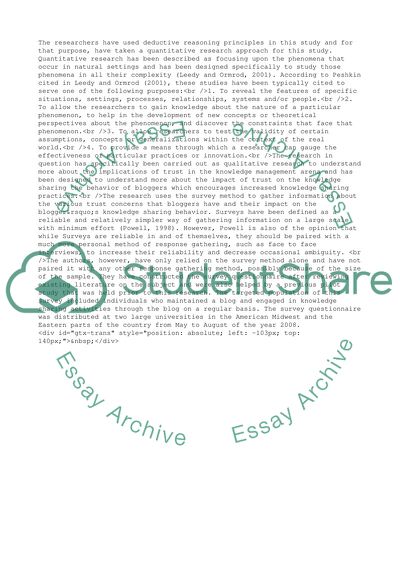Cite this document
(Facilitating Blogging for Knowledge Sharing Withing the Organization Case Study, n.d.)
Facilitating Blogging for Knowledge Sharing Withing the Organization Case Study. Retrieved from https://studentshare.org/management/1571527-research-evaluation
Facilitating Blogging for Knowledge Sharing Withing the Organization Case Study. Retrieved from https://studentshare.org/management/1571527-research-evaluation
(Facilitating Blogging for Knowledge Sharing Withing the Organization Case Study)
Facilitating Blogging for Knowledge Sharing Withing the Organization Case Study. https://studentshare.org/management/1571527-research-evaluation.
Facilitating Blogging for Knowledge Sharing Withing the Organization Case Study. https://studentshare.org/management/1571527-research-evaluation.
“Facilitating Blogging for Knowledge Sharing Withing the Organization Case Study”, n.d. https://studentshare.org/management/1571527-research-evaluation.


